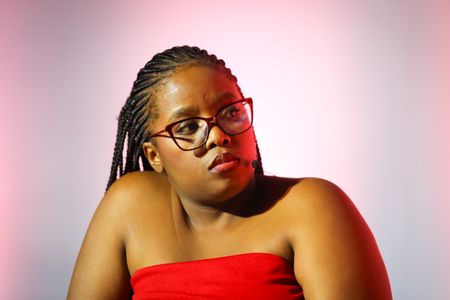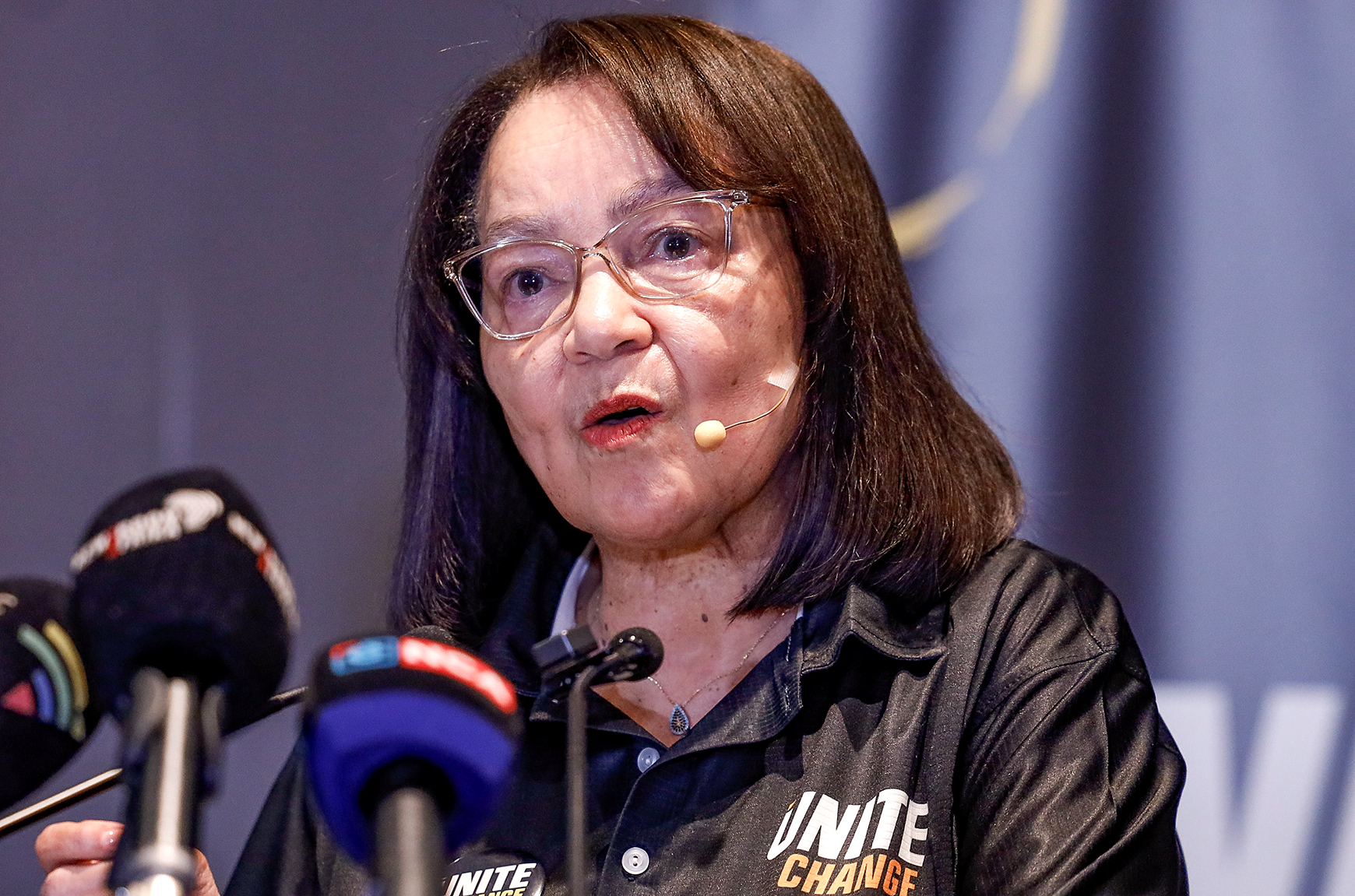It has been just over a week since Unite for Change was formed as a political project, bringing together Good, Rise Mzansi and Build One South Africa (Bosa), with the ambitious goal of reversing the deepening political fragmentation.
Daily Maverick asked Patricia de Lille, the leader of Good and a member of the Unite for Change Leadership Council, how the new formation intends to stand out in an overcrowded political field, rebuild trust, and deliver on its promise of ethical and inclusive leadership. Here’s what she had to say:
Q: With over 450 political parties registered with the IEC, research tells us voters are increasingly disillusioned. How does Unite plan to cut through that noise and offer a credible alternative rather than adding to the political fragmentation?
Patricia de Lille: Voters are disillusioned because opposition voices are split. Our project brings scale, visibility and a single, effective home for pragmatic, inclusive leadership. We’re consolidating leadership, ground structures, volunteers and funding into one vehicle. We will seek to win support larger than the sum of our parts to win seats and deliver services.
Q: You and your co-founders have spoken a lot about putting aside differences to work together under Unite. Yet each of you has chosen to retain your respective party structures. What’s the rationale behind that decision, and how will it work in practice?
PDL: For legal and technical reasons, founding parties must, by law, continue to exist until the next general election. Also, we received separate political mandates when we contested the 2024 elections.
However, campaigning for 2026 will take place under the banner of Unite for Change. Decision-making, policy positions and integration work are already under way.
Read more: What the Good-Bosa-Rise Mzansi merger means for SA’s 2026 coalition politics arena
Q: How do you plan to convince voters that Unite won’t simply contribute to that fragmentation or become another short-term political alliance destined to split later?
PDL: Unite for Change isn’t adding to fragmentation; we’re reversing it. This is not an alliance or a pre-election coalition of convenience. We will contest 2026 together; it will be difficult to unscramble the egg.
Q: Have there been any discussions about Unite’s long-term plan, such as contesting the 2029 national elections, or does the party’s future depend on how it performs in the 2026 local government elections?
PDL: This is a phased project: consolidate and win where government most directly touches people’s lives at local level in 2026, with a vision to expand provincially and nationally. Our objective is political transformation; local government is the disciplined first step, not the end state.
Q: The three founding parties each secured less than 1% of the national vote in the previous elections. How do you respond to critics who see the merger as more of a move for political survival than one of strength or renewal?
PDL: We’re not merging to survive; we’re uniting to build. Separate efforts split votes and capacity. Unite combines credible leaders, sitting representatives and local footprints into a single vehicle that can scale representation and deliver real results.
Q: Having served in government since 1994, what lessons have you drawn about what works and what doesn’t in South African politics?
PDL: I have had the honour of serving governments at all levels — as an executive mayor, MEC, MP and Cabinet member. Yet after 30 years of democracy, I am still the only female leader of a political party represented in Parliament. That alone tells you how little our politics has truly transformed.
The system of apartheid we fought to overcome didn’t only discriminate on the basis of race — it was profoundly patriarchal. Yet, when we talk about healing and transformation, we fixate almost exclusively on race and pay lip service to women. We must fight racism and patriarchy.
Read more: Unite For Change’s entry into the Ultimate Fight Club
Q: Some people may argue that after three decades in government, you’ve become part of the same political establishment that many voters have lost faith in. How would you respond to that perception?
PDL: I’m part of a generation that has fought, and continues to fight, for a just, inclusive and accountable democracy. I’ve never been afraid to stand up to power, even when it was inconvenient or unpopular.
That’s exactly the spirit we’re bringing into Unite for Change. This project is about rebuilding trust in politics by demonstrating ethical, effective and gender-inclusive leadership.
Q: Good is currently part of the Government of National Unity. Will it continue to be part of that arrangement following the formation of Unite?
PDL: Good and Rise Mzansi remain committed to constructive participation in the GNU. We joined the GNU to advocate for justice — social, economic, spatial and environmental — and that remains our focus.
Q: Given the current level of political fragmentation, do you believe South Africa truly needs another political party? Or is it time to focus on consolidating and reforming what already exists to strengthen opposition politics?
PDL: Old binaries, the ANC and DA, have failed. Fragmentation has weakened alternatives. Unite for Change offers a unified centre of pragmatic leadership, built on shared values rooted in social justice, policy convergence and the capacity to govern. DM





 The leader of the Good party, Patricia de Lille, speaks at the launch of Unite for Change on 5 October. (Photo: Sharon Seretlo / Gallo Images)
The leader of the Good party, Patricia de Lille, speaks at the launch of Unite for Change on 5 October. (Photo: Sharon Seretlo / Gallo Images)